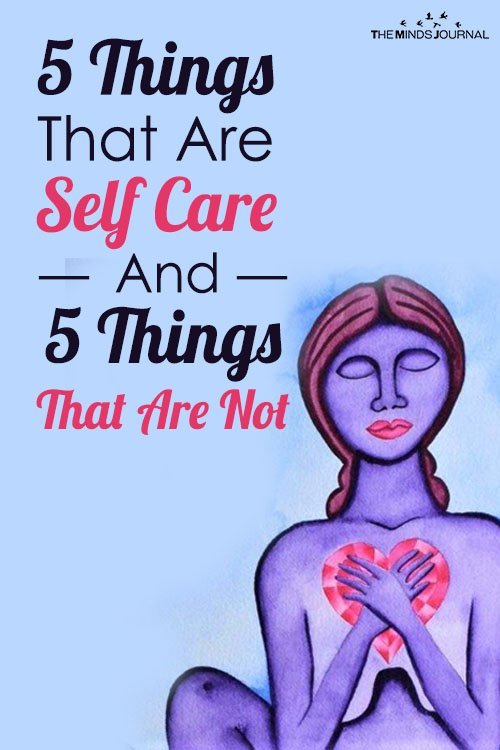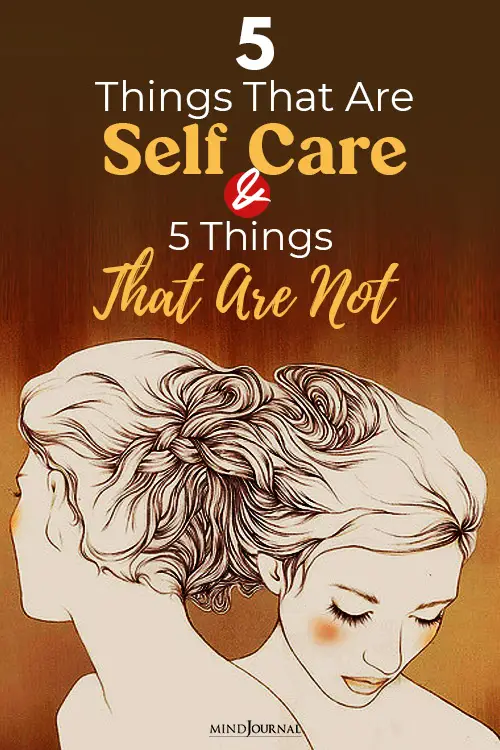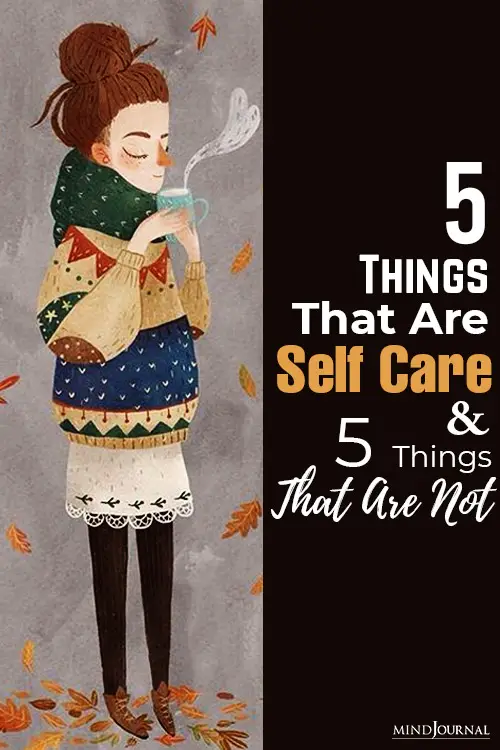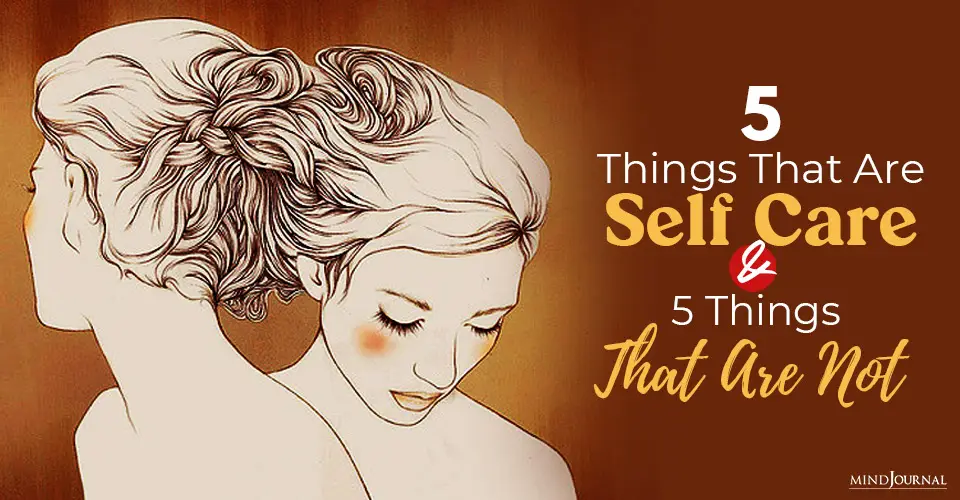Most of us grew up learning to compromise our needs and surrender to those of others, ultimately succumbing to neglecting our self care.
Lavish holidays. Fine perfumes. Bubble baths. Luxuriant chocolates.
Even though it took me aback later as I thought about it, the first mention of “self care” had riddled my mind with all kinds of images.
I still don’t know what it was that got me confused between “self care” and “self-indulgence”. I like to believe that there is a collective impression that the two are one and the same. And it’s also not difficult to understand where that thinking pattern might stem from.
Most of us in most cultures grew up believing in “good” and “bad”, “sin” and “philanthropy” etc. and a lot of our early learning can easily get biased towards maintaining relationships and over-extending ourselves. Which if you look at the deeper cause, is survival in nature.
Nevertheless, self care and self-indulgence are different.
While the latter can often fall under the category of “privilege”, the former belongs under “necessary”.
As many definitions intend to define, “self care” is a way to put our well-being and health at the forefront of things and how do you do it.
“Self-compassion is simply giving the same kindness to ourselves that we would give to others.” – Christopher Germer
Related: 10 Reasons Why You Should Invest On Your Self Development (And How?)
The very first thing is to become acutely aware of what self care is, and what it isn’t.
5 Things That Are Not Self Care
1. It is not: Taking yourself for granted.
Just the other day, I went on a call with an old friend, and the whole call came to be about how many things they need to finish in the coming week and how they are awfully tired to think about it all, but how they’ll anyway manage to do it.
Five minutes into the conversation my alarm bells began ringing, because I know this state of constant doing – I’ve been there.
Let me tell you right away that this is as far from self care as you can imagine. To think “I’ll do it anyway” is another way of saying “I’m going to take myself for granted, not heeding my mind, body, and soul”. In my experience, multiple cycles of “doing” mode would invariably flatten me out and push me into “being”, as some health issue or other would descend on me.
2. It is not: Positive psychology at the cost of real feelings.
It would be fair to say that this pointer that I’m discussing right now has landed me into more conversation scrapes than I can remember.
To be honest, we do live at a time of greater mental awareness and perhaps greater spiritual seeking, but to imbibe a spirit where you just speak good and feel good, seems to be far-fetched.
Think how you feel as you engage with your inner and outer worlds every single day, moving through challenges and living life the way it comes to you. Do you see how you can look at everything positively? You get hurt by a careless remark by a friend, but you smile on.
You feel insanely pressured at work, but you carry on and don’t express it in any way. in reality, the first instance makes you “sad” and the latter “overwhelmed”.
And when you don’t heed that, it’s certainly not self care.

3. It is not: Putting on a “happy mask’ no matter what.
When I first met JH a decade ago, I was taken in by their constant charm and ability to make the whole room seem warm and friendly. Five years down the line, JH was gone, having succumbed to a massive heart attack. When I later met one of their cousins, that person had only one thing to say, “J’s mask got him.”
It was a powerful remark because what he was really trying to say is that embodying a mental, emotional, physical, and spiritual upbeat state, without necessarily feeling any of it, can be a hell of a stressful thing.
I’m inclined to believe that a “happy mask” need not always come with positive psychology attached to it. It reminds me of a friend’s friend who once had coolly declared how they choose to show a brave face even if they know they are falling apart inside.
Related: The Power Of Self-Talk
4. It is not: Putting others before yourself.
A very animal side in us teaches us when we are young, that we have to do all we can to survive.
This subtext of course is unconscious and includes the information, and rightly so, that we have to maintain relationships in order to be safe and content. Millions of years of conditioning and wisdom ensure that we heed our social and emotional connections the way we do.
Problems occur when we are not able to tell where to draw the line and put our own needs before others’ needs and opinions.
While it is true that there will be circumstances where putting others first will seem natural and necessary, self care is knowing when to say no, when to listen to your instincts and when to peel yourself away from toxicity.
5. It is not: Splurging on the best of material things.
Retail therapy is a known concept by now, around the world. However, in the strictest sense of the term, it might not really fit into the category of self care.
For one, splurging does not address any real issues or challenges that you may be facing in life. And while not denying that a one-off spree can lift your spirits, splurging on material happiness often comes with a host of other problems.
Unhindered ambition around wealth and hoarding in the long run can actually go in the opposite direction from self care, causing stress and bad health.
5 Things That Are Self-Care
1. It is: Respecting your own boundaries.
If you’ve gone even a bit into the nuances of boundaries, you’ll know how important they are – to know when your feelings need more acknowledgment, to know when to withdraw from a situation, to accept that you can’t achieve all your goals at the same time, all of it where you bring yourself to pause and really assess what will work for you, all of it is self care.
It could be about changing a toxic workplace for another that values you, declining social interactions when you’re tired or even opting not to enter a romantic relationship until you’re ready.
Related: Discover Your True Authentic Self
2. It is: Acknowledging your feelings, whatever they are.
In a way, this is really the anti-thesis of pop psychology. To fit into a world that’s competitive and success-oriented, we often pick up cues that we align given any circumstance. This invariably comes with a sense that we mustn’t feel any of the feelings that we know the world frowns upon. Which means we can’t be sad, angry, bitter, or any such thing.
When you’re focusing on self care, you’ll have to come back to the truth that you’ll have feelings and no matter how difficult they seem, there is good reason to heed them. It is anyone’s guess what long-term pent-up emotions can do. Alternative medicine even has made connections with emotions and auto-immune conditions like cancer.
3. It is: Showing how you feel authentically.
Emotions and feelings are seen the world over with a certain amount of wariness. Some people associate a lack of control with a show of emotions, some aren’t even in touch with how they feel and some are fearful of what might happen if they are to show their feelings.
While recognizing how important self care is, it is absolutely necessary that you look at the world with feelings and also figure how to express it. Safe expression is part of self care, and it’s essential you stay authentic to expression without causing harm to yourself or another.
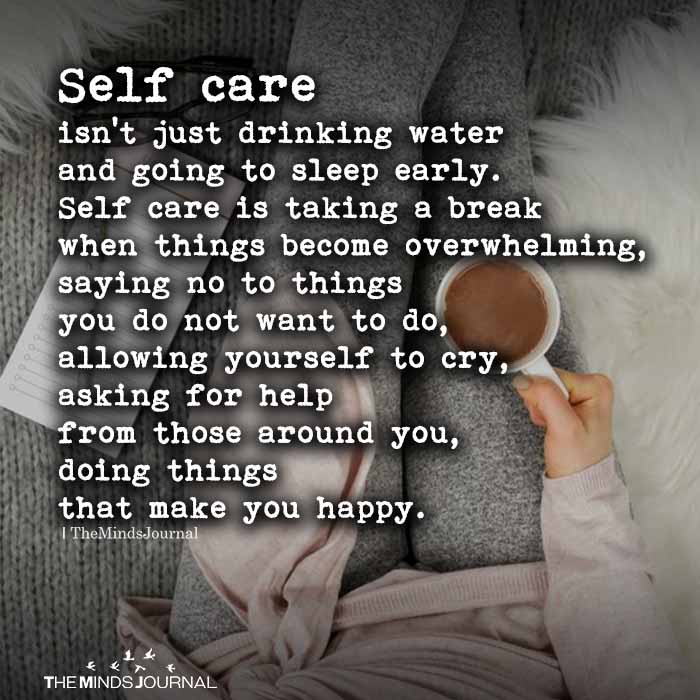
4. It is: Tuning into your own well-being.
I remember the time I was steeped in a “doing” mode. Sleep had become an insistent problem and my overall metabolism had been hugely impacted. That was when I realized I would need to tune into what “felt” good to me.
I began looking at the basics – the food I was eating, the yoga I was practicing, the way I was taking rest.
Self care does not mean that these basics fall into place quickly, It simply means an intention to work on the new self-awareness you’re cultivating with every passing day.
Related: How To Heal Yourself By Talking To Your Body
5. It is: Finding out what matters to you.
Even before I got acquainted with the idea of self care, I was told, “Do what makes you happy.” While this is wonderful advice to follow, many times we forget all those things that inspire us to live and go on living anyway.
We forget to play, to write, to dance, we forget to visit those places that made us feel about ourselves. Self care is to get back in touch with all those aspects of yourself that might make you feel alive and well, but you don’t know enough of.
In my own journey, I have seen how self care can change the quality of life. How small changes can bring a sense of wellness and well-being. An awareness of what works for you and what doesn’t can put you further on your path of exploration.
